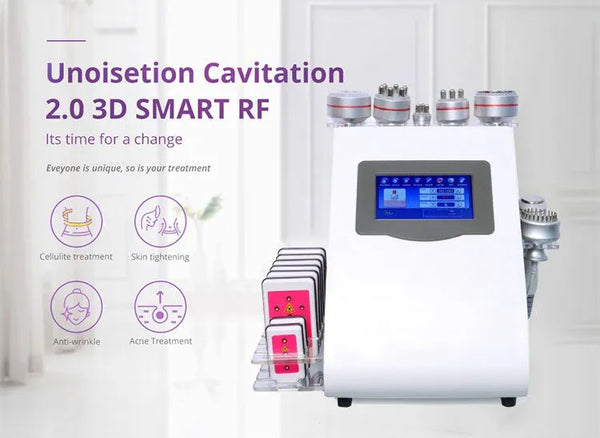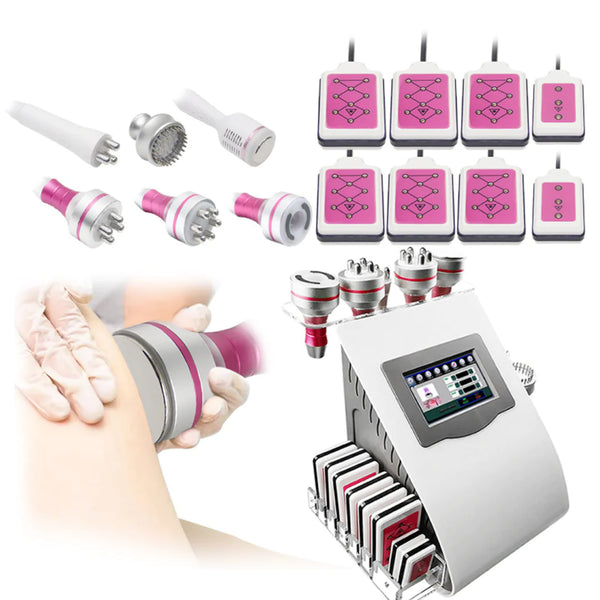In the pursuit of the perfect body or a healthier lifestyle, individuals often turn to cutting-edge technologies and treatments. One such technology that has gained popularity is Lipo Laser—touted as a non-invasive body contouring procedure. However, with its rise in popularity, concerns have been raised about the potential link between Lipo Laser treatments and the risk of cancer. This blog post dives into the science and scrutiny surrounding Lipo Laser, dissecting the evidence to provide a comprehensive understanding of this health controversy.
Understanding Lipo Laser
Lipo Laser, also known as laser lipolysis, is a non-surgical procedure that claims to reduce body fat by stimulating the body's natural process for releasing energy from stored fat. The treatment typically involves the use of low-level laser lights to break down fat cells, a process known as photobiomodulation. The liquefied fat then gets expelled from the body through the natural metabolic processes.
How It Works
Laser energy penetrates the skin and is absorbed by fat cells, disrupting their cell membranes and inducing a process of lipolysis, releasing fatty acids and triglycerides into the interstitial space. Subsequently, the adipose cells deflate, reducing the body's circumference. Proponents of Lipo Laser often claim that the process is painless and effective, with noticeable results after a series of treatments.
Common Uses
Lipo Laser is widely used in the health and wellness industry for various purposes, including body sculpting, cellulite reduction, and skin tightening. Many clinics, wellness centers, and spas offer Lipo Laser as a non-invasive alternative to traditional liposuction, with the promise of minimal side effects and downtime.
Research on Cancer Risk
Although Lipo Laser has garnered a substantial following, the question of its safety, particularly regarding cancer risk, has stirred significant debate. Early studies discussed the potential of laser light in promoting cancerous growth. However, current evidence on the direct link between Lipo Laser and cancer remains inconclusive and lacking in robust scientific support.
Overview of Studies
The existing literature comprises a mix of in vitro and animal studies that suggest a potential for light-based therapies to affect cancer cells. Some studies argue that laser light might promote cancer progression, while others indicate no significant risk. However, these findings cannot be directly applied to Lipo Laser without further investigation.
Factors at Play
Several factors contribute to the ambiguity surrounding the risk of cancer from Lipo Laser. Variables such as the specific wavelength and energy density used, treatment duration, and individual patient factors can influence the safety profile. Furthermore, the ability of the body to manage the release of the lipid content post-treatment plays a critical role.
Expert Opinions
Obtaining insights from medical professionals and experts in the field can shed light on the safety of Lipo Laser treatments and their potential impact on cancer risk. The conversation around Lipo Laser safety is nuanced, with differing perspectives among specialists.
Medical Community Stance
Many medical professionals express caution but do not outright dismiss the use of Lipo Laser. There is general agreement that more research and long-term studies need to be conducted to conclusively determine any cancer risk associated with Lipo Laser.
Technological Advancements
Experts point to advancements in Lipo Laser technology that aim to enhance the precision and safety of the treatment. These developments include real-time temperature monitoring to minimize damage to surrounding tissues and improvements in device ergonomics for better results and patient comfort.
Safety Guidelines
For those considering or providing Lipo Laser treatments, adherence to safety guidelines is paramount. Establishing a set of best practices ensures that treatments are administered in a manner that minimizes potential risks and maximizes safety.
Use by Trained Professionals
Lipo Laser devices should only be operated by individuals with the appropriate training and certification. Clinics must ensure that their staff are skilled in the application of such technologies and are knowledgeable about safety protocols and emergency procedures.
Quality Assurance
It is the responsibility of clinics to ensure that their Lipo Laser devices are regularly maintained and properly calibrated. This helps to avoid any potential malfunctions or errors during treatments, which could increase the risk of adverse effects.
Proper Assessment and Consent
Patients must undergo a comprehensive assessment before receiving Lipo Laser treatment, including a review of their medical history and any underlying health conditions. Informed consent should be obtained from the patient, outlining potential risks and benefits of the procedure.
Device Calibration and Maintenance
Regular calibration and maintenance of Lipo Laser devices are crucial for delivering consistent and safe treatments. Malfunctioning equipment can lead to unpredictable outcomes and pose unnecessary risks to patients.
Addressing Concerns
The potential for a link between Lipo Laser and cancer is a legitimate concern for both clients and service providers in the wellness industry. Addressing these concerns involves informed decision-making and proactive measures to ensure safety.
Patient Considerations
Individuals interested in Lipo Laser treatments should thoroughly research the procedure, ask pertinent questions, and consider their medical history and risk factors. Open communication with the treating professional is essential to managing expectations and understanding the treatment process.
Professional Best Practices
Clinics and wellness centers play a critical role in addressing the concerns around Lipo Laser. By providing accurate information, transparency about potential risks, and a commitment to safety, these establishments can build trust with their clientele.
Conclusion
The prevailing conversation about Lipo Laser and its alleged link to cancer underscores the importance of critical evaluation and balanced discussion. While there is no definitive evidence to suggest that Lipo Laser treatments directly cause cancer, the available research and expert opinions highlight the need for caution and further study.
For individuals considering Lipo Laser, conducting thorough research, consulting with medical professionals, and choosing reputable providers are wise steps to take. Likewise, health and wellness businesses should stay informed, uphold stringent safety standards, and contribute to the ongoing dialogue on the safety of emerging technologies.
At its core, this discourse serves as a reminder that while we pursue our wellness goals, a judicious approach to any treatment—traditional or modern—will always be the best course of action for our health and peace of mind.





